
Jamiroquai are an English acid jazz and funk band from London. Formed in 1992, they are fronted by vocalist Jay Kay, and were prominent in the London-based funk and acid jazz movement of the 1990s. They built on their acid jazz sound in their early releases and later drew from rock, disco, electronic and Latin music genres. Lyrically, the group has addressed social and environmental justice. Kay has remained as the only original member through several line-up changes.

The Lovin' Spoonful is an American folk-rock band formed in Greenwich Village, New York City, in 1964. The band were among the most popular groups in the United States for a short period in the mid-1960s and their music and image influenced many of the contemporary rock acts of their era. Beginning in July 1965 with their debut single "Do You Believe in Magic", the band had seven consecutive singles reach the Top Ten of the U.S. charts in the eighteen months that followed, including the number-two hits "Daydream" and "Did You Ever Have to Make Up Your Mind?" and the chart-topping "Summer in the City".
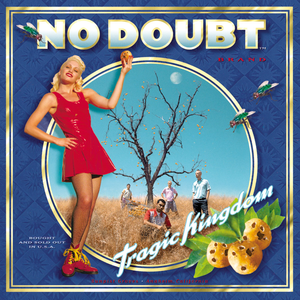
Tragic Kingdom is the third studio album by American rock band No Doubt, released on October 10, 1995, by Trauma Records and Interscope Records. It was the final album to feature original keyboardist Eric Stefani, who left the band in 1994. The album was produced by Matthew Wilder and recorded in 11 studios in the Greater Los Angeles area between March 1993 and October 1995. Between 1995 and 1998, the album spawned seven singles, including "Just a Girl", which charted on the Billboard Hot 100 and the UK Singles Chart; and "Don't Speak", which topped the Billboard Hot 100 Airplay and reached the top five of many international charts.
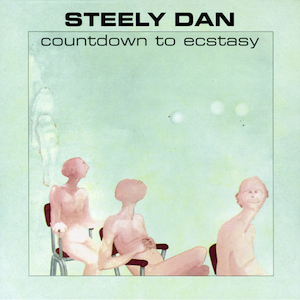
Countdown to Ecstasy is the second studio album by American rock band Steely Dan, released in July 1973, by ABC Records. It was recorded at the Village Recorder in West Los Angeles, California, except for Rick Derringer's slide guitar part for "Show Biz Kids", which was recorded at Caribou Ranch in Nederland, Colorado. After the departure of vocalist David Palmer from Steely Dan, the group recorded the album with Donald Fagen singing lead on every track.

Ribbed is the third studio album by the American punk rock band NOFX, released in 1991 through Epitaph Records. It was their last album to feature Steve Kidwiler on guitar; he was replaced by El Hefe. Ribbed is also the last NOFX album produced by Brett Gurewitz, who also produced their first two Epitaph albums. The album sold 8,000 copies upon its release.

Big Choice is a full-length album by the California punk band Face to Face, released in 1995. It was released on Victory Music in 1995, and then re-released on A&M Records. "Disconnected" was released to alternative radio on January 20, 1995. "Debt" was released as a single on August 15, 1995.
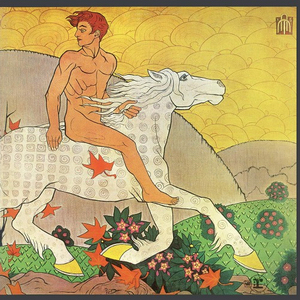
Then Play On is the third studio album by the British blues rock band Fleetwood Mac, released on 19 September 1969. It was the first of their original albums to feature Danny Kirwan and the last with Peter Green. Although still an official band member at the time, Jeremy Spencer did not feature on the album apart from "a couple of piano things". The album offered a broader stylistic range than the straightforward electric blues of the group's first two albums, displaying elements of folk rock, hard rock, art rock and psychedelia. The album reached No. 6 on the UK Albums Chart, becoming the band's fourth Top 20 LP in a row, as well as their third album to reach the Top 10. The album's title, Then Play On, is taken from the opening line of William Shakespeare's play Twelfth Night—"If music be the food of love, play on".

The Gap Band was an American R&B and funk band that rose to fame during the 1970s and 1980s. The band consisted of three brothers: Charlie, Ronnie, and Robert Wilson, along with other members; it was named after streets in the historic Greenwood neighborhood in the brothers' hometown of Tulsa, Oklahoma.

"Special" is a song by American rock band Garbage from their second studio album, Version 2.0 (1998). It was released as the album's third single. The track contains a vocal interpolation of a lyric taken from "Talk of the Town" by the Pretenders.

"Push It" is a song by American rock band Garbage from their second studio album, Version 2.0 (1998). It was released on April 20, 1998, as the album's lead single. Lead singer Shirley Manson elaborated on the song's dreamy verse structure versus the confrontational chorus: "[It's about] the schizophrenia that exists when you try to reconcile your desires and demons with the need to fit in. It's a song of reassurance". The track contains a musical quotation of the Beach Boys' 1964 song "Don't Worry Baby".

Party Mix! is a remix album by American new wave band the B-52's, released in 1981 by Warner Bros. Records. It features three songs from their first studio album, The B-52's (1979), and three songs from their second LP, Wild Planet (1980). It has received generally good reviews. Commercially, the album peaked at number 55 in the US and number 36 in the UK.

David Hungate is an American retired bass guitarist noted as a member of the Los Angeles pop-rock band Toto from 1976 to 1982 and again from 2014 to 2015, and the son of judge William L. Hungate. Along with most of his Toto bandmates, Hungate did sessions on a number of hit albums of the 1970s, including Boz Scaggs's Silk Degrees and Alice Cooper's From the Inside.

Breakfast Club is an American musical group. Their biggest hit single was "Right on Track" (1987), which peaked at No. 7 on the US Billboard Hot 100 chart. The song was remixed for a commercial release in a 12" version for dance and club play by John "Jellybean" Benitez and became a top 10 hit on the Billboard Magazine Hot Dance Club Play chart. After 35 years of absence, in 2022 the band reformed and released a new single called "Could We Not Stop Dancing?" followed by "Fantasy Street" in December 2023.

The Gap is the fourth full-length album by Joan of Arc. It released in 2000 on Jade Tree Records.
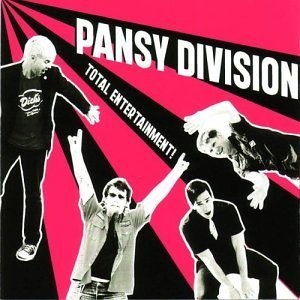
Total Entertainment! is a studio album by American queercore band Pansy Division. It was released in 2003 by Alternative Tentacles.
"Take Me to the River" is a 1974 song written by singer Al Green and guitarist Mabon "Teenie" Hodges. Hit versions were recorded by Syl Johnson, Talking Heads and Delbert McClinton. In 2004, Green's original version was ranked number 117 on Rolling Stone magazine's list of the Rolling Stone's 500 Greatest Songs of All Time. Green's 1974 recording was inducted into the Grammy Hall of Fame in 2011.

Manic Compression is the second studio album by American post-hardcore band Quicksand. It was first released on February 24, 1995 on vinyl through Revelation Records, before being given a widespread CD release through Island Records on February 28, 1995. The album influenced many post-hardcore and alternative metal bands. It peaked at number 135 on the Billboard 200.

"Have You Ever Seen the Rain" is a song by American rock band Creedence Clearwater Revival, written by John Fogerty and released as a single in 1971 from the album Pendulum (1970). The song charted highest in Canada, reaching number one on the RPM 100 national singles chart in March 1971. In the U.S., in the same year it peaked at number eight on the Billboard Hot 100 singles chart. On the Cash Box pop chart, it peaked at number three. In the UK, it reached number 36. It was the group's eighth gold-selling single. In March 2023, the song surpassed one billion streams on Spotify.
"What Have They Done to the Rain" is a protest song against above-ground nuclear testing written by Malvina Reynolds. The song has been sung by many singers such as Joan Baez, and a version by the English band The Searchers was released as a single, which charted in the US and UK.
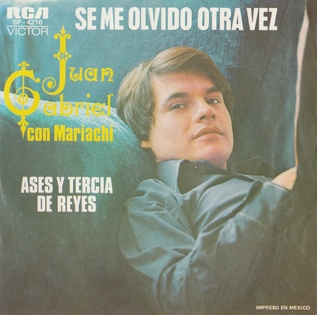
"Se Me Olvidó Otra Vez" is a song written and performed by Mexican singer-songwriter Juan Gabriel for his fourth studio album, Juan Gabriel con el Mariachi Vargas de Tecalitlán (1974). The song is a ranchera number that tells of an awaited but impossible reunion as the singer forgets he is the only one who loved the woman. It was released as the lead single from the album in 1975. The song has been listed as among Juan Gabriel's best songs according to music critics and was one of the best-performing singles of 1975 in Mexico. Gabriel has re-recorded the song twice, the first for his compilation album, Por Los Siglos (2001), and as a duet with fellow Mexican singer-songwriter Marco Antonio Solís on his 28th studio album, Los Dúo (2015).


















